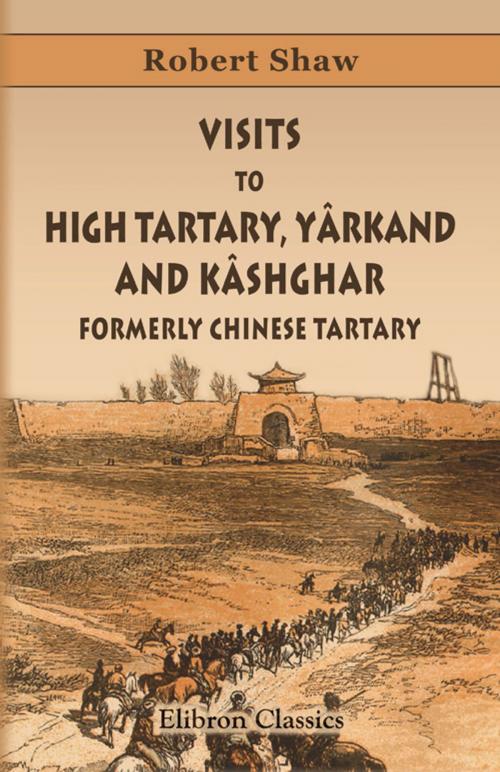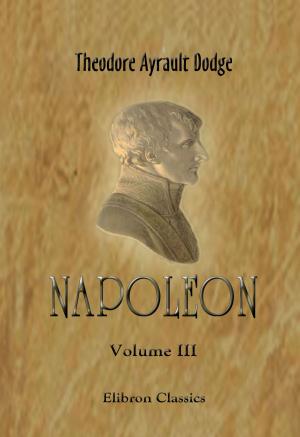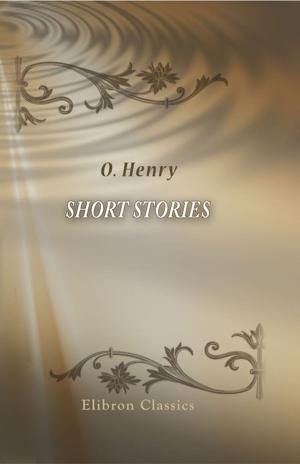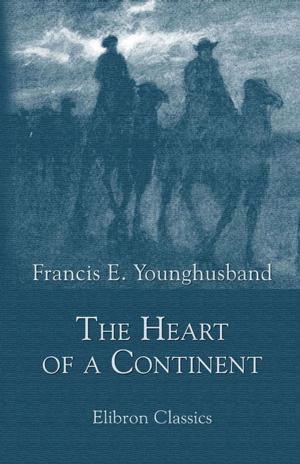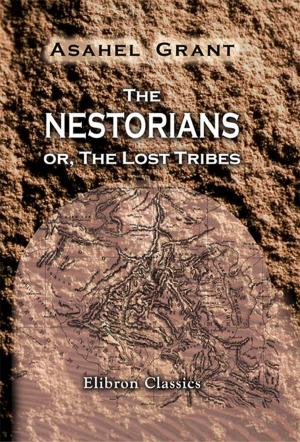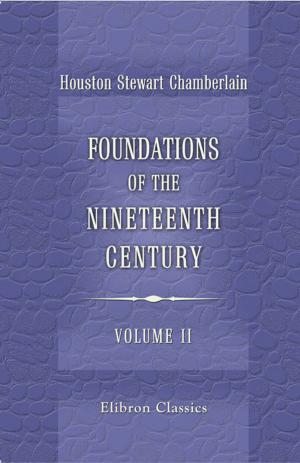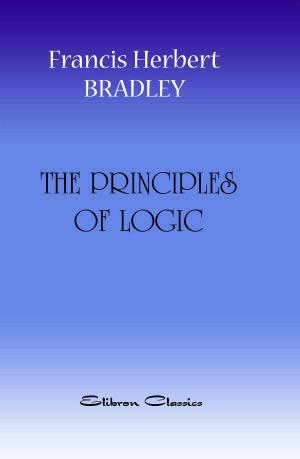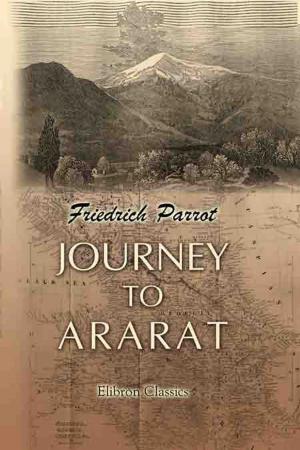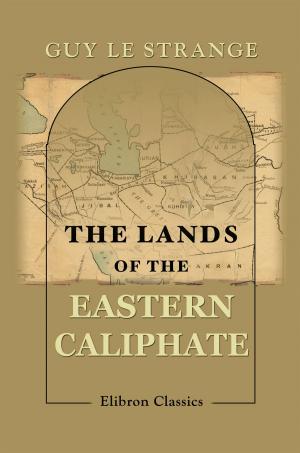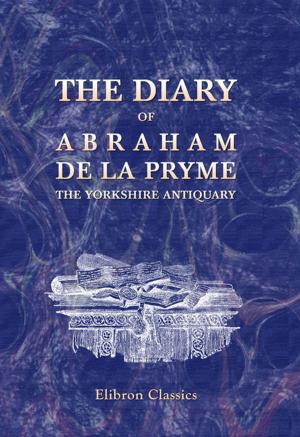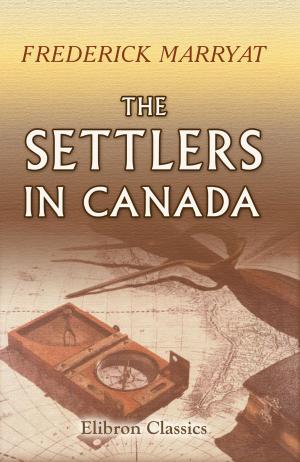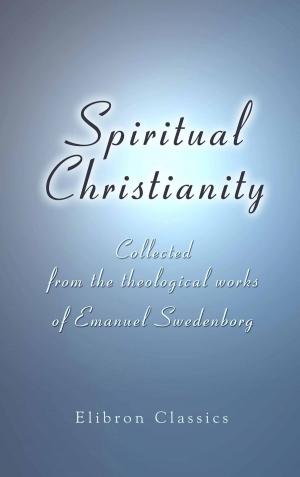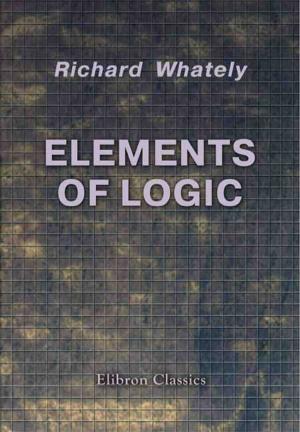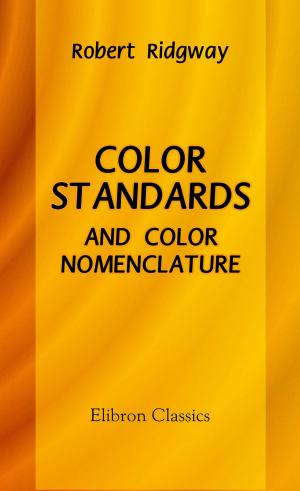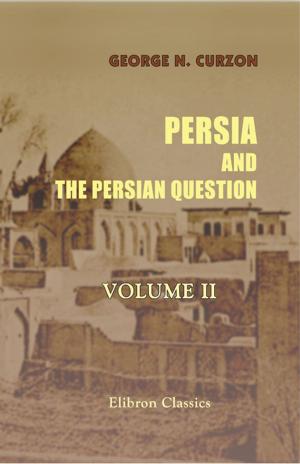Visits to High Tartary, Yârkand, and Kâshghar (Formerly Chinese Tartary).
And Return Journey over the Karakoram Pass.
Nonfiction, Travel, Asia, China, History| Author: | Robert Shaw | ISBN: | 9780543011107 |
| Publisher: | Adegi Graphics LLC | Publication: | November 1, 2012 |
| Imprint: | Elibron | Language: | English |
| Author: | Robert Shaw |
| ISBN: | 9780543011107 |
| Publisher: | Adegi Graphics LLC |
| Publication: | November 1, 2012 |
| Imprint: | Elibron |
| Language: | English |
Replica of 1871 edition by John Murray, London. Elibron Classics. Oversize maps are available as a free download. With illustrations. The captivating travel narrative chronicling the author’s journey through Central Asia. Robert Shaw, the author of this work was an unlikely explorer, struck down by rheumatic fever after university and forced to tame his desire for adventure by settling down as a tea-planter in the Himalayas. Yet “an adventurous spirit, stimulated by study and unabated by the delicacy of his constitution, inspired him with a desire to penetrate the then almost unknown country north of the Karakoram; and, after one or two tentative excursions, he started in May 1868 for Eastern Turkestan, traveling as a merchant, but taking with him, besides such goods as seemed likely to find purchasers in Central Asia, a prismatic compass and Rawlinson’s Herodotus. He reached Yarkund on 8 Dec., Kashgar on 11 Jan. 1869; being the first Englishman to visit those places. At Kashgar, though not allowed to enter the city, he was treated with marked civility by Yakub Beg, the ruler of the country who, mainly in consequence of the advice given him by Shaw, despatched an envoy to India asking that a British officer might be sent to arrange a treaty. Shaw returned by the Karakoram Pass, and proceeded to England. While preparing an account of his journey for the press, he heard that Lord Mayo had decided to send an official mission to Eastern Turkestan. He at once telegraphed an offer of his services, which being accepted, he accompanied Mr. (afterward Sir Douglas) Forsyth on his first mission. Yakub Beg, when they arrived at Yarkun (3 Aug. 1870), was in another part of his dominions, and the mission came back with its principal object unachieved. Shaw returned to England where in 1872 the Royal Geographical Society awarded him the patron’s gold medal, Sir Henry Rawlinson stating that this distinction was given him ‘for the services he had rendered to the cause of geography in exploring Eastern Turkestan; and above all for his very valuable astronomical observations’” (DNB) This is Shaw’s finest work on his adventures in Eurasia.
Replica of 1871 edition by John Murray, London. Elibron Classics. Oversize maps are available as a free download. With illustrations. The captivating travel narrative chronicling the author’s journey through Central Asia. Robert Shaw, the author of this work was an unlikely explorer, struck down by rheumatic fever after university and forced to tame his desire for adventure by settling down as a tea-planter in the Himalayas. Yet “an adventurous spirit, stimulated by study and unabated by the delicacy of his constitution, inspired him with a desire to penetrate the then almost unknown country north of the Karakoram; and, after one or two tentative excursions, he started in May 1868 for Eastern Turkestan, traveling as a merchant, but taking with him, besides such goods as seemed likely to find purchasers in Central Asia, a prismatic compass and Rawlinson’s Herodotus. He reached Yarkund on 8 Dec., Kashgar on 11 Jan. 1869; being the first Englishman to visit those places. At Kashgar, though not allowed to enter the city, he was treated with marked civility by Yakub Beg, the ruler of the country who, mainly in consequence of the advice given him by Shaw, despatched an envoy to India asking that a British officer might be sent to arrange a treaty. Shaw returned by the Karakoram Pass, and proceeded to England. While preparing an account of his journey for the press, he heard that Lord Mayo had decided to send an official mission to Eastern Turkestan. He at once telegraphed an offer of his services, which being accepted, he accompanied Mr. (afterward Sir Douglas) Forsyth on his first mission. Yakub Beg, when they arrived at Yarkun (3 Aug. 1870), was in another part of his dominions, and the mission came back with its principal object unachieved. Shaw returned to England where in 1872 the Royal Geographical Society awarded him the patron’s gold medal, Sir Henry Rawlinson stating that this distinction was given him ‘for the services he had rendered to the cause of geography in exploring Eastern Turkestan; and above all for his very valuable astronomical observations’” (DNB) This is Shaw’s finest work on his adventures in Eurasia.
